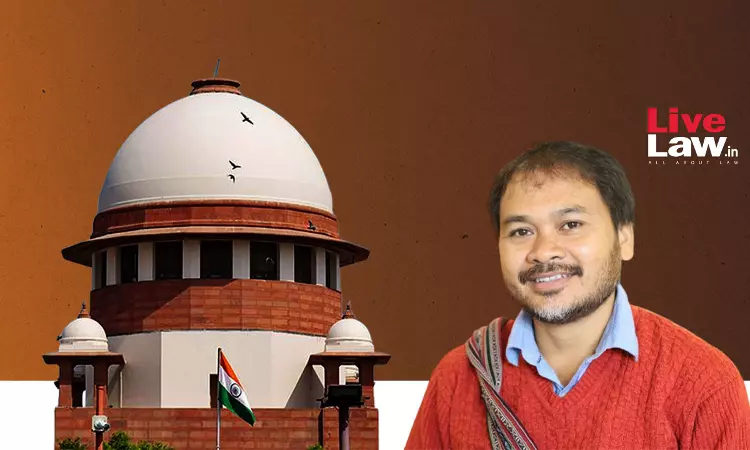Supreme Court Issues Notice On Akhil Gogoi's Plea Challenging Sedition Law And Similar Offences
Padmakshi Sharma
22 July 2023 7:45 AM IST

Next Story
22 July 2023 7:45 AM IST
The Supreme Court on Friday issued notice in the writ petition filed by the Assamese activist-turned-politician Akhil Gogoi challenging the constitutional validity of the offence of sedition contained in Section 124A of the Indian Penal Code, 1860 along with related offences “which employ similar logic of sedition inasmuch as they entail the same ingredients”. The bench comprising CJI...
